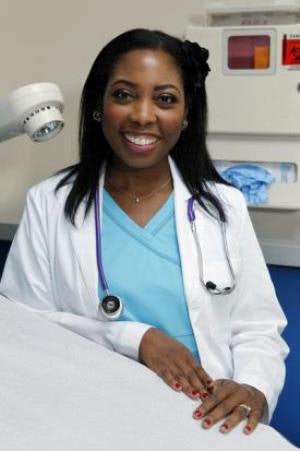Recent headlines have shared historic announcements by many leading corporations of their new commitment to supporting greater diversity in science, technology, engineering and math. These announcements are truly remarkable because this new financial support for diversity is targeted at historically Black colleges and universities (HBCUs) and their students. Corporations such as Apple and Verizon are driving this sudden interest in diversity. The leadership of these corporations is realizing that HBCUs are key resources in diversifying the STEM playing field.
 Dr. Myiesha Taylor
Dr. Myiesha TaylorWhile these recent announcements are appreciated, there is a need to provide support for HBCUs and their mission that cannot be overstated. Over the past decade HBCUs have faced declining economic support from both the government and private donors. At the same time many students continue to turn to HBCUs for an accessible and affordable path to obtaining their higher education.
HBCUs have a long history of educating leaders who have changed the history of our society. Dr. Martin Luther King Jr., Thurgood Marshall, Dr. Regina Benjamin, Alex Haley, and Marian Wright Edelman are just a few of the distinguished HBCU alumni in this category. HBCUs account for a mere 4 percent of all four-year institutions yet award 21 percent of the undergraduate degrees obtained by African-Americans.
In the crucial STEM areas of study, the essential role of HBCUs cannot be underestimated. Despite less than 15 percent of African-American undergraduates attending them, HBCUs produce more African-American graduates who go on to receive advanced degrees than any other institutions. A 2008 National Science Foundation report found that a third of all African-American science and engineering doctorate recipients in the United States attended and completed their undergraduate education at an HBCU. In a 2013 study titled “Historically Black Colleges and Universities: Facing the Future,” Dr. Phillip L. Clay showed that HBCUs produce the following percentage of African-Americans with undergraduate degrees in these STEM areas:
- 18% engineering
- 31% biological science
- 31% mathematics
- 17% health professionals
Dr. Clay’s study also highlighted that, of the top 15 institutions graduating the most Black students earning degrees in physical science, 11 are HBCUs. Eight HBCUs are among the top 10 producers of Black graduates who later obtain Ph.D.s in science and engineering.
 Dr. Trevonne Thompson
Dr. Trevonne ThompsonHBCUs are as relevant today as they were 100 years ago. This is especially true in the area of health sciences. Although African-Americans make up approximately 13 percent of our nation’s population, we comprise only 4 percent of the national physician workforce. Health disparities are ever present—heart disease, hypertension, obesity, diabetes, infant mortality, stroke, asthma, breast cancer, and other diseases continue to disproportionately affect African-Americans. A large part of the solution, as reported by the Institute of Medicine and others, is to diversify the health professions workforce.
HBCUs have played a vital role in our history and continue to play a vital role in the present. When addressing the need for increasing diversity in STEM fields, HBCUs can address those needs and serve as the talent incubator to provide society with the next generation of leaders.
Dr. Trevonne Thompson is an emergency physician and medical toxicologist at the University of Illinois Hospital & Health Sciences System and an assistant professor at the University of Illinois at Chicago College of Medicine. He is alumnus of Xavier University of Louisiana and president of the Xavier University of Louisiana Physician Alumni Association.
Dr. Myiesha Taylor is an emergency physician and owner of Taylored Physician Professional Association. She is an alumnus of Xavier University of Louisiana and President of Artemis Medical Society.















